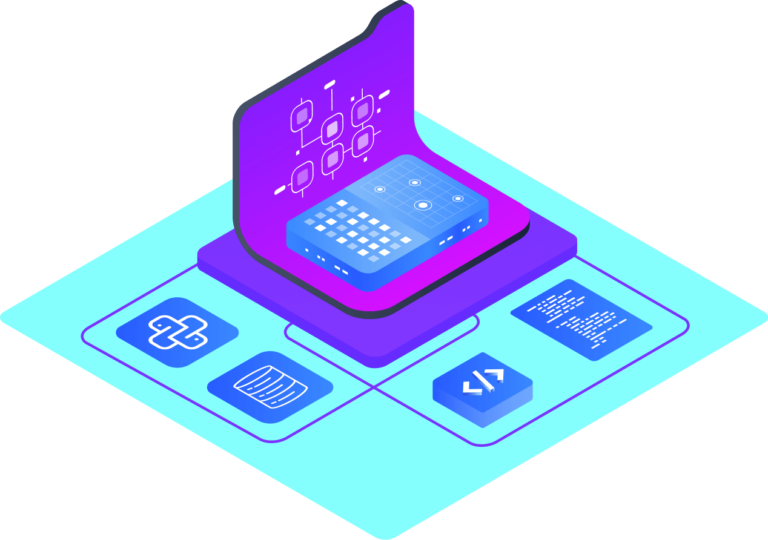StackFuel Friends - Recommend StackFuel and receive €250!
Menu
Monday to Friday from 9:00 am to 6:00 pm
Deepen your Python knowledge with principles of object-oriented programming.

With the certified Object-Oriented Programming module, you will deepen your Python knowledge and ensure that you can also apply your skills when working with teams and organizations. You will also learn the most important design principles and best practices of object-oriented programming so that you can implement your software projects even faster and more efficiently.
You will complete the Object-Oriented Programming module with two final projects. You will build your own interface to a popular data science library and program your own blockchain, learning about the underlying concepts for both use cases. Upon successful completion, you will improve your Python skills, which will give you additional practical experience and make you even better qualified for a data role.
In the first chapter, the definition of functions is further deepened and you will learn about default values, type hints and assert statements. You will then be able to use functions even better as tools for your projects. You will work with the terms List Comprehension and Dictionary Comprehension to efficiently create lists and dictionaries. At the end of the chapter, you will learn how to adapt your code to the industry standard PEP8 based on layout and structure.
In the second chapter, you will use simple examples to learn what OOP is, which program principles are based on it and which conclusions you can draw from it. In the main part of the chapter, you will explore how classes and attributes are defined and used. Using examples, you will examine instance methods as well as their use and definition with method chaining. You will learn what the self keyword is and how to distinguish debugging from class definitions. Finally, you will test your previous knowledge in an interactive intermediate project.
In the third chapter, you will learn what inheritance and compositions are and how to use these concepts in use cases. In addition to simple inheritance, you will also learn more advanced methods such as the inheritance hierarchy and multiple inheritance. You will practise in-depth inheritance methods that are used to reuse data from parent to child classes and compensate for data loss. Finally, we will provide you with the most important best practices for unit tests to detect errors in your code before your users find them.
In the fourth chapter, you will cover advanced concepts of object-oriented programming that will accompany you in your day-to-day work. You will study how programs and modules differ and what role _ _main_ _ plays in this. You will also learn what decorators are and how to make optimum use of property decorators. You will look at static and class methods and which special methods and class representations can be used with _ _str_ _() and _ _ _repr_ _(). Building on this, you will learn about representation options for operator overloading and other important methods from the Python Standard Library and then apply what you have learned in a company-relevant intermediate project.
In the fifth chapter, you will put your knowledge to the test in two larger projects that represent classic use cases of object-oriented programming. In the first project, you will build your own interface to a popular data science library, which enables further possible uses for machine learning or data or text analysis. The second project deals with programming your own blockchain, where you will get to know the underlying concepts in more detail.
Find your training program with us and start your data career! Book a non-binding consultation now.
Our training courses are developed and produced by our own team of data scientists and subject matter experts, who provide you as a participant with personal mentoring during the course. We not only focus on realistic and practical content, but also ensure that all your questions are answered in a personal exchange and thus guarantee your learning success.
Thanks to our "learning-by-doing" principle, you will learn in our interactive learning environment with realistic data sets and real business cases from the industry, preparing you perfectly for a successful career start in a data job.
With StackFuel, you can rely on a market leader with Germany's most innovative learning platform to develop your data skills in a practical way.in certified training programs you learn online, flexibly and with 80 % practical content.
This will enable you to make a lateral entry as a data analyst or data scientist and learn how to use data and the basics of artificial intelligence professionally. Your new data career starts with your online training at StackFuel.
Data has become an integral part of our (professional) lives. In almost all areas, data helps you to better understand facts and make more precise decisions. Data skills are the key to being able to use and interpret data correctly. Even though you may not realize it, you work with, interact with and generate data every day.
This data is becoming increasingly important for companies and is the basis for decisions and business models, which makes data professionals incredibly important for companies.
StackFuel GmbH
Nostitzstrasse 20
10961 Berlin
info@stackfuel.com
030 / 83790025
Solutions
Company
Resources
Contact